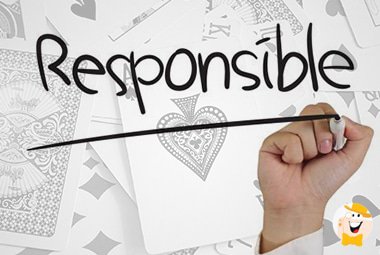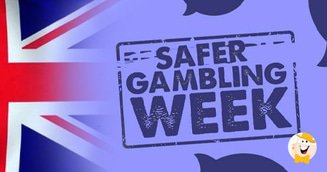
Intentional or Collateral Damage?
The fact of the matter is that minors are going to encounter gambling advertisements (online or otherwise) as they scour the Internet regardless of whether or not they are the intended targets. Beyond the scope of advertisements, the concept of gamblification, which I have written about pretty recently.
Is such that many free apps and games online consist of gambling elements. These apps and other games incorporate gambling elements into the games and many of them have little to nothing in the way of meaningful age verifications. As a result, minors are inherently going to be exposed to the concept of gambling.
One question is whether or not this sort of exposure is an effort by the casino (or app) industry, in general, to essentially groom these minors for the prospect of gambling as they become adults. We would certainly like to think that minors are not being deliberately targeted, but at the same time, such targeting technically makes sense from a business standpoint.
The fact of the matter is that many people who partake in gambling products and services are adults. The thing about adults, as all people, is that adults all are cursed with a finite lifespan. What that means is that, as adults die off, they need to be replaced by people who become adults in order to have the same player pool. This is essentially true in any industry.
If you don’t believe me, look at a show such as MTV’s Pimp My Ride. Many of the viewers of that show were minors and the show served as a method to attract them to the idea of, ‘Pimping out,’ their cars as they would grow older and get them. ‘Pimping Out,’ just means making customized modifications in order to make the car cooler.

(Also, let me apologize for referencing a dated show, I really don’t watch much television.)
Anyway, the fact of the matter is that if minors had no concept of gambling, then they would be much less likely to grow up and become gamblers. Fewer gamblers is bad for the industry, which is something that I think should be a non-controversial statement.
The U.K. Times has found that online gambling companies have spent £1.4 billion just in advertising since 2012 having doubled their annual budgets for marketing over the last five years. If you take into consideration the amount of gross revenues that these companies collectively take in, then you will arrive at the conclusion that this sort of marketing expenditure (average of 280 million annually over that period) is no trifle.
One thing that needs to be considered is that promotionals also constitute marketing budget for the purpose of most of these studies. Therefore, any time a casino offers a bonus that results in the player winning, and withdrawing, that might constitute a promotional expense. At the very least, whatever the amount of the bonus itself was would constitute a promotional expense. Naturally, that assumes that Internet casinos account for it the same way Land Casinos in the United States do, but that seems like the most sensible way to do it.
When you look at affiliate sites, such as ourselves, then expenditures that go to compensate us when players sign up using our links would also constitute marketing expenditures. Therefore, it’s really difficult to narrow down the exact amount that goes into direct advertisements.
The Times also points out that kids are watching television after 9:00p.m., on average, just prior to attaining the age of twelve years. In the United Kingdom, bookmakers are permitted to begin advertising themselves directly on television starting at about that time. Additionally, the Times points out that gambling companies may also advertise themselves via other means, such as sponsoring Premier League teams.
In fact, television does not even account for half of the advertising expenses incurred by the companies located in the United Kingdom. As I have mentioned before, a substantial percentage of all marketing costs come by way of Internet portals and other Internet advertisements.

The real question for this Editorial is, should these companies be allowed to advertise at all, and if so, what should the limits of that advertising be?
Means of Advertising
I would suggest that the first question as to whether or not these bookmaking companies could be seen as deliberately (even if only in part) attempting to attract minors is the source of the advertising. For example, for one of the bookmakers to have an advertisement on this site would be perfectly okay in my book, because it is difficult to imagine a minor stumbling across this site.
However, when you look at Premier League games, this study finds that it is roughly equally popular amongst all age groups, but the age bracket of 16-24 leads online viewing.
Though the study focused on Asian countries, a minor is a minor. Also, the study found (no surprise) that minors are generally more attracted to the Premier League by means of a celebrity endorsement or through athletic apparel.
Sports is highly relevant here because the United Kingdom Gambling Commission has found that approximately one-half of one percent of all individuals aged 16+ identify as problem gamblers.
Furthermore, those who do not consider themselves problem gamblers certainly do gamble as the Commission also found that 48% of all individuals (February 2017 study) gambled on something within the past four weeks:
Therefore, what you end up having is a situation in which gamblers are almost in the majority. That’s perfectly fine, of course, far be it from us to say not to get a little bit of money down, but it is certainly important to gamble intelligently and within one’s means.
This study increased the percentage of problem gamblers to 0.7% of respondents. As we have already determined, 52% of respondents did not gamble within the four week period in question at all. Thus, when we look at that 0.7%, it effectively only relates back to the 48% of respondents who did gamble within the four weeks. For the sake of simplicity, if we were to call that 48% fifty percent instead, then we could extrapolate that approximately 1.4% of all people who actually gambled at all identify as problem gamblers. In reality, it would be slightly higher than that, but not really meaningfully so.

Furthermore, the study found that 38% of individuals in the age bracket of 16-24 had participated in some form of gambling within the four week period, so again, people are being successfully targeted from an early age, intentional or not. Granted, that’s lower than the 48% of adults aged 24-35 as well as the 48% who have gambled within the four week period overall, but not meaningfully lower.
The thing is, most forms of gambling in the United Kingdom (National Lottery and Scratch Cards excepted) require that an individual be eighteen years old. Thus, if we look at a gambling rate of 38% within the age bracket of 16-24, but figure that 2/9ths of that bracket shouldn’t even be gambling to begin with, then:
(38/9) * 2 = 8.444
Essentially, you would add another 8.444% to the percentage after adjusting for age and arrive at a conclusion of approximately 46.444% of the age bracket with the ability to participate in ALL legal forms of gambling have likely done so, or something very close to that. Ultimately, there is effectively no real meaningful difference between the age groups with perhaps the biggest difference maker being access to discretionary income.
I mean, that’s why people who skew older tend to be slightly more likely to gamble and tend to have a greater average gambling spend. You can’t get the money down without the money.
In addition to that, the study also helps my point (page 7) by citing sporting events as occurring as the same time as a spike in gambling amongst the younger crowd. I shall quote from the study:
This is likely due to the timing of the UEFA European Football Championship and the Rio 2016 Olympics, which both occurred in the summer of 2016, and prompted unusually high rates of betting activity, particularly amongst younger people.
As you can see, the study has correlated sports betting increases with increases in general gambling activity as well as increases in gambling activity among the younger crowd specifically. Could that tie in with the ability for gambling companies and books to advertise during Premier League games taking place after 9:00, I wonder? Could it have anything to do with them sponsoring Premier League teams? Showing up on social media aside with Premier League players and other related news?

It’s obviously not much of a stretch.
What we do find is that, by volume of gamblers (assuming they are gamblers) participation in live sports betting is relatively weak with under 50% participating in live sports betting or other event wagering. What makes these youthful customers so fit as a target market, then?
The answer is Internet Gambling. When it comes to online gambling participation rates, in 2016, Spread Betting led the charge followed by Sports Wagering, a virtual tie between Casino/Event wagering and then football pools coming in a close fifth. In other words, when it comes to the online market, sports bettors are among the most lucrative in the United Kingdom. Now the participation on social media and sponsorship of teams starts to make a lot more sense!
The majority of gamblers in all categories identify as gambling weekly, followed by more than once per month but less than weekly and then multiple times per week coming in third. Less than once a month comes in last, but given the study took place over a four week period, it would be skewed for people not to answer less than once per month as they would remember their most recent occasion gambling. It’s really tough to make anything of that because the nature of the study might have artificially reduced the number of people who may have otherwise answered, “Less than once per month.”
In terms of problem gambling, which is the real point of interest, 5.6% of the gamblers felt guilty about their gambling, 4.2% admitted to betting more than they could afford to lose while 2.4% of gamblers have been criticized for their gambling habits. Again, this aspect of the study is completely self-reported, so there’s little reason to believe that the actual percentages aren’t at least a little bit higher in all categories.
Younger gamblers are also less likely to have their gambling under control. While 5.5% were identified as, “At-Risk,” overall, individuals in the 16-24 bracket were 7.9% at-risk while individuals in the 25-34 bracket were 9.5% at-risk.
In other words, to advertise to younger people essentially gets them started in terms of thinking about gambling and is also effectively advertising to a market that is far less likely to have their gambling under control when they do start gambling. In fact, the percentage of respondents identified as at-risk drops to just below the overall average between the ages of 35-54 and drops further from there.
1.4% of younger people, called it!:
Overall 0.7% of respondents identified as problem gamblers, with men more likely than women to be categorised as such (1.2% compared to 0.1%). 16-24 year olds are most likely to be categorised as problem gamblers (1.4%), followed by 35-44 year olds (1.1%) and 25-34 year olds (0.8%).

I promise I typed that above before I saw that part of the study!
The study also finds that 6% of gamblers have self-excluded, which really confuses me, because how could any number under 6% be considered at-risk then!? That makes no sense. I definitely favor casinos granting people the ability to self-exclude, and I recommend it for anyone who thinks that he/she may be getting in too deep. However, how could someone self-exclude and NOT be considered at-risk, as this study seems to imply?
I mean, I’m not saying everyone who self-excludes is a problem gambler, but should certainly be considered at risk, at least for a time.
Again, self-exclusion rates are highest in the 25-34 category and second-highest in the 16-24 category. That makes sense as they have the highest likelihood of being at-risk gamblers to begin with, and also, because those age groups may not fully comprehend the responsibilities that go along with being a gambler.
Also, almost three-quarters of gamblers surveyed DO NOT read the T&C’s.
I swear to God, the last words I ever type before I die are going to be, “Read the Terms and Conditions thoroughly,” you can bet on that.
Another section focuses on what we talked about earlier, the venues through which ads are most effective. In order, they are: Free Bets/Bonuses, TV, Online, Social Media, Newspapers and Billboards coming in last.
Why Free Bets?
I’ve discussed this before when looking at values of promotions. Anything, “Free,” is designed to attract low-no bankroll players, get them to try out (and hopefully become loyal) to the casino and eventually to get them gambling when they do have money. For the most part, “Free,” anything has an expected value of close to nothing, but it does get the player to experience the thrill of gambling and perhaps winning something each time a wager or spin goes well.
The majority of gamblers who are well-enough bankrolled are going to focus on deposit bonuses as opposed to free bets. The reason why is because deposit bonuses (generally) offer more value. The idea behind a free bet is to essentially attract people who are either new to gambling or broke, preferably the former.
In essence, you get the player started gambling with the, ‘Free,’ whatever it is, and then that player loses and thinks, “But...I was so close!” Eventually, many such players will put down an actual deposit when they get a little bit of money saved up and can find themselves in trouble in a serious hurry if they are not careful. It’s not because they are necessarily gambling more money (on individual average) than other gamblers, but because they have less money to gamble with.
There is an exception for problem gamblers and at-risk gamblers, but any punters who do not fall into one of those two categories accomplish two things as they age:
1. They learn to gamble more intelligently.
AND
2. They have the discretionary income such that losses are not financially devastating for them.
The end result of this is that it makes sense for gambling companies to try to attract a younger crowd. While the gambling is more likely to be financially problematic while the gamblers are young, developing a habitual (not to be mistaken with, ‘problem’) gambler means that you have a customer for life. Granted, that customer is going to eventually gamble more intelligently, but even then, that could still involve more money.
Thus, you arrive at the conclusion that maybe there is some intentional targeting of youth because every marketing dollar spent targeting youth (directly or indirectly) essentially serves as a means by which to potentially start a lifelong relationship.

And, gamblification? The study finds:
...There has been an increase in participation by 18-24 year old online gamblers (47%, +6% from 2015). This has taken place alongside a decline in social gaming for online gamblers in all other age groups…
How could social gaming be targeting anyone else? The 18-24 year-old crowd is the ONLY growing market for those types of social media gambling games. Many of these games involve actual casino-style games, but others still are, ‘Fantasy,’ type games or placing sporting wagers on real life events with, ‘Credits,’ that do not correspond to actual money.
Unfortunately, the study did nothing to account for fictional wagering or fantasy-type games. What it did do was pose the question of whether or not online gamblers using social games had started out on social games, or on actual real money gambling: The result was an almost even split.
Remember, though, the 16-18 year olds effectively shouldn’t be able to gamble for real money on anything aside from the lottery or scratch cards. What that means in the realm of social gambling is that a very high percentage of the individuals who got their start on social gambling (as opposed to real money gambling) were likely 16-17 and transitioned into real money gambling when they hit legal age. That is to say nothing for even younger individuals, who were not accounted for in the study.
Vice also finds that about 2/3rds of online gamblers believe that they did so in response to advertising.
Conclusion
The ultimate takeaway from all of this is that many people of the younger demographic who find themselves gambling online are more likely to be problem gamblers, more likely to mix social gaming (gamblification) with real money wagering, more likely to play irresponsibly and are more likely to be susceptible to advertising.

Again, the question: Are the bookmakers advertising directly and intentionally to people not yet old enough to gamble?
My answer: Does it matter?
The fact of the matter is that everyone benefits if people are taught from a youngish age that, if gambling is to be legal (as it should be) how to gamble intelligently and within their own means. The sorts of advertisements that youths in the United Kingdom are likely to see across the various media outlets are unlikely to accomplish any of that.
There is also some question as to whether or not the bookmakers can make any protestation of innocence when it comes to targeting minors. For one thing, why would they need to advertise on social media? Is there anyone outside of the 16-24 demographic who doesn’t already know what a bookmaker is, how to find one (online or otherwise) and how to get bets down?
I believe that there are two possible solutions that I think go a long way towards resolving this issue. The first one is that these companies could be prohibited from advertising in conjunction with sports teams. The second one (which I would more strongly support) is that individuals of a certain age (or younger) signing up for a gambling site for the first time should be made to watch a video and complete a quiz on responsible gambling.
In my view, the problem is not so much that these companies are advertising to youthful individuals who will turn into customers for years to come. That’s what any company should do in relation to the bottom line, as long as everyone who is actually playing is doing so legally, then that’s all on the up and up.
The problem is that these companies have clear and consistent undeniable numbers backing up the assertion that problem and at-risk gambling exists in a greater propensity amongst more youthful players and punters, and if I may steal a term, they’re not doing a bloody thing about it.
My answer: The companies should do more to encourage responsible gambling on their own, that failing, the UKGC should make them do it. God, it hurts me to say that!










Mission146 6 years ago
6 years ago
Mil E Na, You're welcome, thanks for reading! Unfortunately, I believe thinking about youngsters might be exactly what some of these companies are doing!
Please enter your comment.
Your comment is added.
Mil E Na 6 years ago
6 years ago
Thanks for this article, Brandon! This is a serious problem and gambling marketers should be extra careful and think about youngsters when making those advertising campaignes.
Please enter your comment.
Your comment is added.